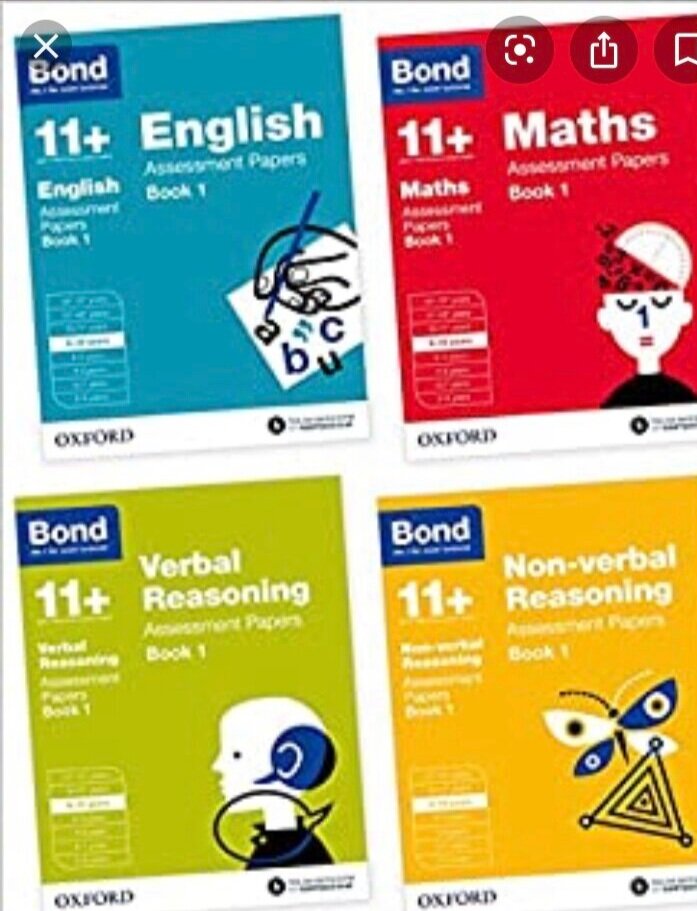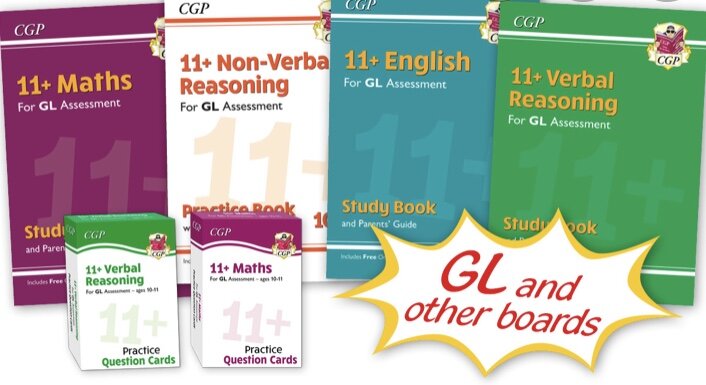“My child’s 11+ exam is next year, how do I start preparing for it?”
This is a great question and one I hear often.
In fact, I wrote a guidebook on this very topic almost a decade ago. It’s rather dated now, especially as the CEM was only introduced in 2013, but I’m hoping to produce an updated version of the book in the nearby future.
In the meantime, here are some tips to help guide you through starting your child’s 11+ prep. These tips are also somewhat applicable to the 7+, 8+, 9+ and 10+ exams.
Be Honest
I know we all think our children are perfect but the unfortunate truth is that not every child is suited to the 11+. Some children don’t have the drive or determination to study for what can feel like hours on end. Some would rather watch TV all day or take part in tons of activities after school than to spend their evenings or holiday periods studying for an exam. Before you even begin to consider the 11+, think about whether your child is naturally bright and be honest with yourself. Does your child have natural academic potential or are they lagging behind academically? Does your child want to sit the exam? Do they want to go to a grammar or independent school? Think about these things and be honest with yourself. Don’t hesitate to ask your child questions and discuss whether they’d like to go through the 11+ process.
Start early
I know that not all parents are fortunate enough to have discovered the 11+ early, but as a general rule of thumb, early preparation makes a tremendous difference. If you can, start laying the foundation for your child’s educational success as early as possible and avoid leaving exam prep to the last minute. Even before you begin working through 11+ books, strengthen your child’s academic foundation by teaching them new vocabulary words and help them to build their English and Maths skills. For instance, it’s a great idea to pick up books that cover topics such as SPAG, arithmetic, mental maths and comprehension.
Begin with research
Research which schools you’re applying for and if possible, consider visiting them as early as possible. Sometimes parents start 11+ preparation and then find out months later that the school they’re applying for doesn’t even test a certain subject so it’s best to know where you’re applying to first. Then you can plan accordingly. It’s also worth reaching out to your target schools and confirming which format their exams are in and which subjects your child will sit exams in. For example, some schools require students to only sit exams in Maths and English, whilst others assess Reasoning as well. Generally, the main exam types are the CEM, GL Assessment, ISEB, CSSE or the standard exam (for independent school entry).
Start small
The Bond books are a great starting point. Start with the lower age bracket (e.g. 7-8) and then work upwards. Go through questions that your child is struggling with most and check the ones they got wrong so they don’t repeat mistakes.
Get focused
Focus on improving your child’s overall vocabulary, English and Maths skills. These skills aren’t just important for the 11+ but for life. The stronger their English and Maths, the more likely they are to do well.
Find a routine
Get into a routine. This is important so that it becomes a habit for your child to study every day and it helps them to manage homework alongside 11+ work.
Don’t solely D.i.y
Although you don’t have to hire a tutor for long periods of time, it’s definitely a good idea to book a few sessions or at the very least, an assessment. Ideally, if you’re thinking about hiring a tutor on a long-term basis, it’s best to see which tutor your child clicks with and then to join their waiting list early so that your child can have a few lessons with them closer to the time of the exam. Some parents don’t use a tutor at all and that’s fine, but it’s good to have a second opinion from someone who has a strong track record of getting children into the particular school(s) you’re applying for. If you don’t want regular lessons, just book a few sessions or assessments with them and they should be able to give you a report of their observations.
Stay calm
Stay calm and don’t panic because children pick up on these things. Try to encourage your child to have a positive mindset about exams and education in general.
Recommended 11+ Revision Books & Resources
When it comes to preparing for the 11+ exams, it can be very daunting figuring out which materials and resources are best. Here are some of our favourites.
For Early Preparation (Ideal For Years 3 & 4)
The Bond 11+ Bundle (Ages 6-7) - The bundles include all four subjects (English, Maths, Verbal and Non-Verbal Reasoning)
The Bond 11+ Bundle (Ages 7-8)
For Generation Preparation and Revision (Years 5 and above)
Practice Papers For GL Assessment
Quick Practice Tests For GL Assessment
For ISEB & Independent School Exam Preparation
Bond Verbal Reasoning (age 11-12)
Recommended Vocabulary Books
The Cadwaladr Quests by SL Ager (Tangled Time)
The Cadwaladr Quests by SL Ager (Race For Gold)
Here’s to your child’s success!




